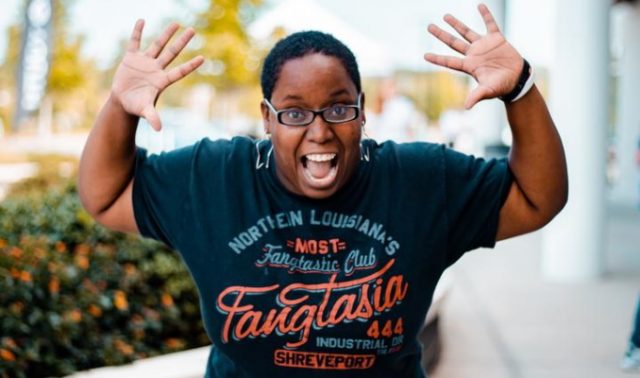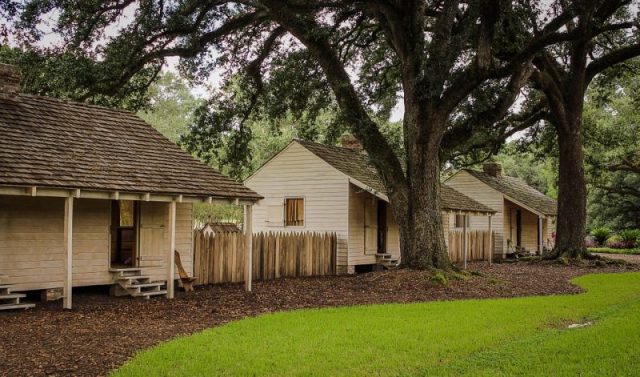A TikTok star has gone viral after posting a video in which she dismantled the concept of reparations. She also gave all Americans a lesson on something much more important as she laid out the first step to healing.

Savannah Edwards, a black TikTok star who goes by @thisissavvy, went viral after posting a thought-provoking clip on the platform. In her short video, Edwards tackled the concept of paying reparations to black Americans — an idea that has come up time and again. She not only dismantled the idea of reparations, but she also gave everyone a tough lesson on healing, which requires forgiveness — not payback.
With Democratic politicians and media figures across the country renewing calls for reparations amid the ongoing national conversation regarding racial justice, Edwards’ video couldn’t have come at a better time. This is especially true, considering the fact that “California — a state that never allowed slavery” — had even “formed a task force to study the issue as a way to atone for past sins,” according to The Blaze.
@thisissavvy
After saying that she had been hearing “a lot of talk about reparations” on social media lately, Edwards began the clip by explaining that she had even heard a pastor in Tulsa, Oklahoma, declare, “We cannot have true reconciliation and healing without reparations.” Without mincing any words or skipping a beat, Edwards boldly stated, “I don’t agree with that.”
Edwards went on to give a brilliant explanation as to why she disagreed, rattling off several factors that would complicate the equitable distribution of payments to ancestors of slaves. “It’s 2021, how are we to determine who gets reparations and who doesn’t?” Edwards asked rhetorically before expanding on the difficulties our country would face in trying to decide who would be eligible for reparations and who wouldn’t be.

“Again, it’s 2021, not every black person is the descendant of a slave, and not every descendant of a slave is black, and not every person who was a slave was black,” Edwards continued. “And, are we talking about slaves who were freed when the war ended or slaves who were freed maybe even decades after the first slave ship arrived? In a lot of the Northern states, slavery ended just after the Revolutionary War. But, I digress,” she added before moving on to a more important lesson that everyone needed to hear.
Even if we could determine who would get reparations, Edwards went on to explain that those reparations would never heal our nation or any of its citizens anyway. Why? Only forgiveness can do that. “The first step to healing is forgiveness,” said Edwards, who is a Christian.

“If the first thing that comes out of your mouth is, ‘Well they don’t deserve forgiveness’ — Sit down, let me learn you a thing or two,” Edwards commanded. “Time heals all wounds, but if you have a wound that hasn’t healed, it’s probably because you’re still picking at it. If you fill your heart with bitterness, there’s no room for joy. There’s no room for peace. Holding onto bitterness is bondage, and many of y’all have chained yourself to the dead.”
Further addressing the bitterness living in people’s hearts, Edwards continued, “Even worse, some of y’all have passed that bitterness down to your children,” before going on to explain how to heal that bitterness with forgiveness. “Forgiveness isn’t for that other person; it’s for you,” Edwards explained. “It’s to set you free.”
@thisissavvy Reply to @diggs719
Within the first four days of posting the video, it received hundreds of shares, thousands of comments, and tens of thousands of “likes.” Although it left a positive impression on many, not everyone came away with an appreciation for Savannah Edwards’ views on reparations or forgiveness. “Why should I forgive them for the way they looked down and continued to look down on my people?” one such commenter asked.
The question prompted a follow-up video from Edwards, which is seen above. In it, she explained that “you can’t control what other people do; you can only control your response” and went on to reiterate the central concept of her previous video, saying, “Forgiveness does not excuse people’s behavior, forgiveness does not erase the past, forgiveness sets you free. Forgiveness releases you from bitterness.” I couldn’t have said it any better.
Source: Tap Worthy Happenings

0 Comments